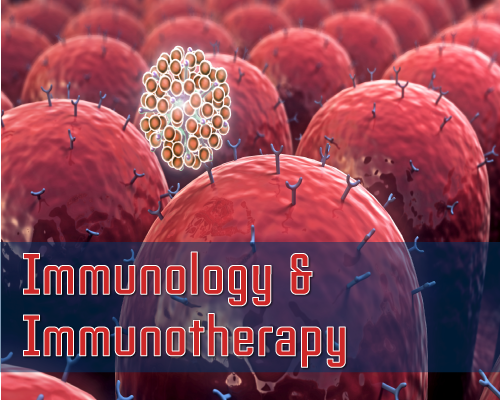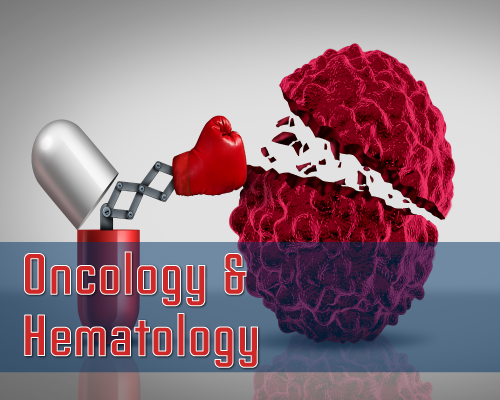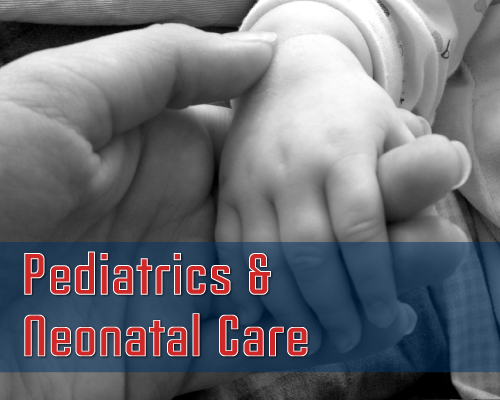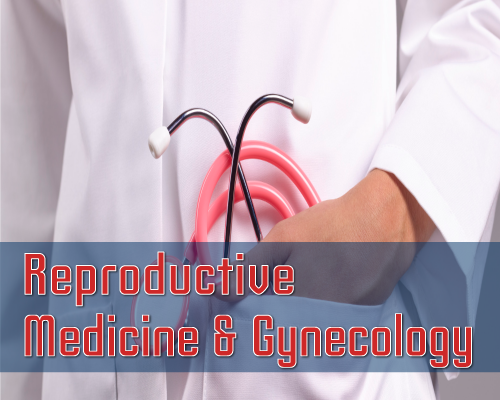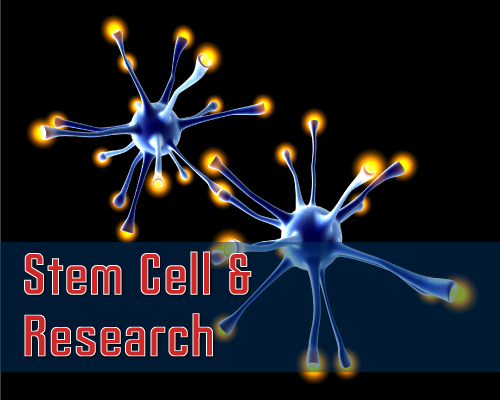Cinar N1*, Kuguoglu S2, Sahin S3and Altinkaynak S4
1Sakarya University, Faculty of Health Sciences, Division of Nursing, Department of Pediatric Nursing, Sakarya, Turkey
2Acibadem University, Faculty of Health Sciences, Division of Nursing, Department of Pediatric Nursing, Istanbul, Turkey
3Yildirim Beyazit University, Faculty of Health Sciences, Turkey
4Sakarya University, Faculty of Health Sciences, Sakarya, Turkey
*Address for Correspondence: Nursan Cinar, Sakarya University, Faculty of Health Sciences, Esentepe Campus, 54187Sakarya, Turkey
Dates: Submitted: 01 December 2016; Approved: 06 February 2017; Published: 13 February 2017
Citation this article: Cinar N, Kuguoglu S, Sahin S, Altinkaynak S. The Experience of Fathers having Premature Infants in Neonatal Intensive Care Unit. Open J Pediatr Neonatal Care. 2017;2(1): 008-012
Copyright: © 2017 Cinar N, et al. This is an open access article distributed under the Creative Commons Attribution License, which permits unrestricted use, distribution, and reproduction in any medium, provided the original work is properly cited.
Keywords: Infant; Premature birth; Nursing; Father
Abstract
The purpose of this study was to describe the experiences from the birth of premature infants and required care in a Neonatal Intensive Care Unit (NICU) terms of the father's perspective. This study is a pilot study that is carried out in a State Hospital in Sakarya/Turkey in January 2009. Seven fathers participated; their infants were premature and also required care in NICU. Data were collected through narrative interviews. A qualitative content analyze method was used to analyze the interviews. The fathers did not have any experience having prematurely born infant; it was entirely new and unexpected. Most of the fathers were worried to lose their infants because of birth earlier than expected. The fathers were protective over the mother and infant. Fathers have anxiety due to having less information about their infants. Furthermore, it is seen that cultural differences exist in participation to care for the baby. The fathers should be informed more about their infants and cultural differences should be taken into consideration in participation to care of infants.
Introduction
The birth of a baby several weeks preterm can be a traumatic event for the fathers, and may necessitate a great deal of medical intervention to ensure the health of the mother and the survival of the infant. The birth of an infant who requires care in the neonatal intensive care unit is highly stressful for all fathers. Around this time, fathers will generally be given information about what is happening, and about the condition of the mother and baby. It is not clear how much information parents are able to take in during this particularly stressful period immediately around the time of delivery. This may be the time when they are told most about what is happening to them [1,2]. Fathers are not prepared psychologically, physically, and emotionally for the preterm birth. Becoming a father to a preterm baby is not easy because everything happens so fast and comes unexpectedly [3]. Fathers of preterm infants had never imagined how emotional the experience of delivery will be for them; this indicates that it is not enough to be prepared to become a father, but it is also important to feel mature for fatherhood. Fatherhood could be experienced as a disappointment and a frustration [4]. For fathers who expected to be more involved in infant care and underestimated the impact of having a preterm infant, fatherhood was experienced as more difficult and distressing than what was expected before the infants' birth [3,4].
In Turkey previous research has been focused on mother's experiences with little known about the fathers' experiences of having an infant [5-8]. During literature researching regarding experience of fathers, we met studies of Lindberg, et al. and we planned to perform similar studies in Turkey. Thus, the aim of this pilot study was to describe the experiences from the birth of premature infants in the father's perspective in part of Turkey.
METHODS
The pilot study was approved by the Ethical Board in Sakarya University. The written approvals were received from the fathers who have voluntary attend the study. That was carried out in a State Hospital in Sakarya/Turkey in January 2009. Seven voluntary fathers participated; their infants were born prematurely (below gestation week 36) and also required care in a neonatal intensive care unit.
The father's were in 22 to 43 ranged of age. All fathers were in middle socioeconomical status and all of them were Turkish and Muslim. It was the first child of four fathers, two fathers have two children and one father has three children. All fathers lived together with the child's mother during the interviews. The children were born with a gestational age between 28 and 36 weeks. The researcher contacted the participants by telephone, briefed them about the study and informed them that their participation in the study was entirely voluntary and that they could withdraw from the study at any time.
Data of the study were collected by the first author by means of narrative interview method. Interviews were recorded within 50 minutes for each. Participant approval was taken before recording. First question of interview was: Please tell me about your experiences related to your prematurely born infant who hospitalized in a neonatal intensive care unit.
A qualitative design a thematic content analysis was used to achieve the aim of the study. Each interview was read through several times to under sting the content. Then, the whole text was read to identify the meaning units guided by the aim of the study. Before the material was revised, the authors read some parts to judge the credibility. The data were classified and grouped into four theme and nine categories [3,9].
The authors independently checked and reached agreement on the categories and themes. Quotations were chosen from every category of the text to support the credibility.
Results
Overview of themes and categories can structure from the analysis of the interviews with fathers of preterm born infants.
Each theme and category will be presented below:
Theme 1: Suddenly being in a situation never reflected on
Category 1: Not grasping the situation: All fathers reported that they had not expected a premature baby, they had faced the situation incautiously for this reason and they never had a premature baby before. Some of the fathers expressed that "I did not consider such a thing beforehand, I expected that everything is going well, I was shocked when I faced this case". Fathers made efforts to prepare mentally for his infant birth, but it was difficult because they hardly understood how it was to become a father.
Category 2: Not to knowing how to feel: Most fathers reported that they didn't know what to feel about birth of babies too early. They were feeling happy as a father, they also felt anxiety and fear regarding health of their babies.
One of the fathers told that "this is the first time I have been a father, it happened in an unexpected time, shall I rejoice or be sad? I don't know." Even another father expressed that "we were not expecting a premature baby, it was a surprise to us. I wonder if it would be a problem?" It has been seen that fathers are feeling both happiness, anxiety and fear together and they are feeling difficulty to express their feeling at that time.
Theme 2: First consider the baby
Category 3: Putting infant first: Worried fathers of infants were not prepared for the acute care needed right after the infants' birth, or for the needed care at the neonatal unit, which was initially experienced as stressful. Most fathers expressed their anxiety about losing their babies. A father expressed his experiences as "my wife was early discharged from hospital. When we received a phone call I was scared. I thought that my baby had died". Another father expressed his experiences as "I was thinking that our baby was unhealthy because of being premature? She might be handicapped? Besides, health professionals have not informed me sufficiently about this matter". Another father said; "I was always feeling myself worried, at any time bad news might come from hospital".
Category 4: Desiring to see his baby more: Most fathers expressed that they have not enough seen their babies, they are desiring to see their babies more. A father said; "I have never seen the unit which my baby in, I had seen him first on birthday and second time I saw one week later, I would like to see my baby is more". Another father expressed his feeling as "I would like to go into my baby's room and participate in her care but they don't give me permission. I want to see my baby more frequently. I think that it will be more beneficial, otherwise I feel that material responsibility is ours, spiritual responsibility is mothers', but it is not so, even I would like to be in this responsibility and participate in everything related to my baby. I feel that mothers are supported in this matter and fathers are excluded".
Category 5: Desiring to participate to care of baby or not: Most fathers expressed that would like to assist in caring baby and they can do the best if intensive care unit give permission about this issue. A father told that "our baby in incubator and they are giving permission to the mother only for breastfeeding and I see the baby at that time. I don't want to enter the unit that my baby in and participate his care. Because in our tradition fathers completed. That's why I don't feel such a need. To know baby is healthy enough for me".
Theme 3: Increasing of family responsibility
Category 6: To support the mother emotionally and need support of parents
Fathers expressed to necessity of support of mothers. They clarified that mothers are tired, sad and worried. A father said: "my wife is always worried and I try to give her consolation". Fathers expressed that older members of family are supporting to both mothers and fathers emotionally and they are trying to make us feel relieved. They expressed that support of family is important for themselves.
Category 7: Remaining of care of other children to father
There were fathers who have second and third times a baby together with who has first time. The fathers who have another child at home expressed that their responsibility about care had increased. A father told; "I have 2 more children, all of their responsibility remains to me, my workload increased due to my wife has to stay at hospital. Some fathers who have gotten support from older members of the family explained that they have fallen more comfortable their selves.
Theme 4:Information requirements
Category 8: Need to know what happen and more information necessity from professionals
Fathers expressed that they want to get more information about their babies' situations due to they feel entirely unfamiliar and anxious atmosphere of intensive care unit. A father explained his feelings as "when my baby take into intensive care unit they did not inform us at the beginning, I felt quite worry that I wonder is she died? Later on my anxiety decreased when I saw my child. We are worry when we could not get detailed information from doctors or nurses. If they could give more detailed information about our babies we could be more relax." Another father said "not any worry". As it seen those expectations about getting information of fathers were different.
Category 9: Needing to share experiences with someone who can understand
They need to talk with families which met the same problem. They think that no one knows their feelings that have not premature infant. Five fathers expressed necessity to talk with professionals in NICU and it helps more to relief of them.
Discussion
Birth of baby in unexpected time and in lower weight impacts even fathers like all family members. In our study the fathers have difficulties to describe what they feel and they have stated that this situation is unexpected and shocking event. Fathers who have premature infants describe the situation as unexpected and entirely new case. Parents of sick newborns are in higher stress than parents of healthy newborns [10-12].
The anxiety of the fathers in the present study was apparent, and it is imperative that emotional support be provided to them. The mother who held off her baby's care feels herself as stressful, nervous and complex [4]. Stress increases among fathers of surgical NICU babies [13]. Parents of high-risk infants have higher anxiety levels and depression is more common [14]. Fathers who has premature infant in intensive care unit experience anxiety, feeling of helplessness and also fear of the unknown [15]. In our study it is raised that fathers feel responsible themselves in terms of emotional support of mothers. This is a positive approach. Several studies are reported necessity of emotional support of mothers in this situation [6,16,17]. Together with health professionals fathers have significant responsibility in this matter.
If staying period in hospital extends, they feel themselves more sad and nervous. Informing family by nurse about real or potential problem is important. Parents that increased their anxiety level are troubled, they are speaking fast. When parents stress is not discharged and relieved, it becomes a problem which causes loss of confidence to professionals, adaptation difficulties to hospital rules, feeling such as anger, nervous. More over fights may occur [18,19].
Most fathers expressed that they have not enough seen their babies, they are desiring to see their babies more.
In our study it was seen that sufficient information about intensive care unit environment are not given to fathers. Several studies have shown that parents are more distressed by the impact on their parental role than by the unfamiliar, highly technological environment and that their primary needs at this point are for proximity to the child and regular information [11,20-26]. In our studies it is determined fathers need to get more information about their babies from health professionals. Otherwise they are having more anxiety and fear when they haven't been informed sufficiently.
Even in our study information needs of parents of premature infants and necessity of skill level up to cope with the situation are emphasized. In this study the fathers who have another child at home expressed that their responsibility about care had increased. Support of family members and friends to fathers is important to cope with this problem [27]. Participating to care of most of parents in line with care that centralize to family is an important aspect in order to help parents solve problems. Because this confidence provides increasing of communication between parents and health professionals and more beneficial treatment for baby. It is seen that most of fathers desire to participate their babies' care and learn to care and take into baby arms. However the fathers exist who don't want to this and saying to see the baby from sideline and to know it is well are sufficient for them. Requirements of considering of cultural differences in demanding of fathers in this matter by health professionals are quite clear.
Conclusion
Sufficient professional support should be provided for the fathers of premature infants by health professionals in order to mitigate their anxiety and to get adaptation to hospital environment. Educational and supporting approach to the family helps both cope with the hard case and strengthen their skill level about handling problems. When the fathers believe effort and support of health professionals about solving their problems and promoting their life quality, cooperation and mutual effort can be realized in order to achieve targets. Fathers should be encouraged to explain their hopes, fears and other feeling freely. Fathers should be informed more about their infants and cultural differences should be taken into consideration in participation to care of infants.
Limitations of the study
This pilot study will focus on the fathers of premature babies of Sakarya County that are referred to their experience regarding to premature babies.
The data sample size is limited to seven fathers. It is small but this is pilot study. A small sample size has a greater probability that the observation just happened to be particularly good or particularly bad. Therefore it is harder to find significant relationships from the data, as statistical tests normally require a larger sample size to justify that the effect did not just happened by chance alone.
This study will be limited to the generalized. More specific information on specific approaches, intensity of services, and duration of services will need to be conducted in future studies.
Acknowledgements
Dr Lindberg had provided support and references for this study by this occasion we appreciate and thanks to her. Also thanks to the fathers who participated in this study.
Authors' Contributions
Study concept and design: Nursan Cinar, Sema Kuguoglu, Sevil Sahin, Sevin Altinkaynak
Acquisition of subjects and data: Nursan Cinar, Sevil Sahin
Analysis and interpretation of data: Nursan Cinar, Sema Kuguoglu, Sevil Sahin
Preparation of manuscript: Nursan Cinar, Sema Kuguoglu, Sevil Sahin, Sevin Altinkaynak
All authors have read and approved the final version of the manuscript.
References
- Calam R, Lambrenos K, Cox A, Weindling A. Maternal appraisal of information given around the time of preterm delivery. J Reprod Infant Psychol. 1999; 17: 267-280.
- Colville G, Darkins J, Hesketh J, Bennett V, Alcock J, Noyes J. The impact on parents of a child's admission to intensive care: Integration of qualitative findings from a cross-sectional study. Intensive Crit Care Nurs. 2009; 25: 72-79.
- Lindberg B, Axelson K, Ohrling K. The birth of premature infants: Experiences from the fathers' perspective. J Neonatal Nurs. 2007; 13: 142-149.
- Heidari H, Hasanpour M, Fooladi M. The experiences of parents with infants in Neonatal Intensive Care Unit. Iran J Nurs Midwifery Res. 2013; 18: 208-213.
- Barclay L, Lupton D. The experiences of new father-hood: a socio-cultural analysis. J Adv Nurs. 1999; 29: 1013-20.
- Cakmak E, Karacam Z. The correlation between mothers' participation in infant care in the NICU and their anxiety and problem-solving skill levels in care giving. The Journal of Maternal-Fetal & Neonatal Medicine, 2016; 30: 1-11.
- Aydin S, Yildiz S. Effect of classical music on stress among preterm infants in a neonatal intensive care unit. HealthMED, 2012; 6: 3162-3168.
- Yildiz A, Arikan D, Gozum S, Tastekin A, Budancamanak I. The Effect of the Odor of Breast Milk on the Time Needed for Transition From Gavage to Total Oral Feeding in Preterm Infants. Journal of Nursing Scholarship. 2011; 43: 265-273.
- Baxer LA. Content analysis. In: Montgomery BM, Duck S, editor. Studying Interpersonal Interactions. New York, London: Guilford Pres; 1991. p. 239-254.
- Pinelli J, Saigal S, Wu BY, Cunningham C, Dicenso A, Steele S, et al. Patterns of change in family functioning, resouces, coping and parental depression in mothers and fathers of sick newborns over the first year of life. J Neonatal Nurs. 2008; 14: 156-165.
- Hughes M, Mccollum J, Sheftel D, Sanchez G. How Parents Cope With the Experience of Neonatal Intensive Care. Children's Health Care. 1994; 23 : 1-14.
- Miles SM, Carlson J, Brunssen S. The Nurse Parent Support Tool. J Pediatr Nurs. 1999; 14: 44-50.
- Joseph RA, Mackley, AB, Davis CG, Spear ML, Locke RG. Stress in Fathers of Surgical Neonatal Intensive Care Unit Babies. Adv Neonatal Care. 2007; 7: 321-325.
- Hummel P. Parenting the high-risk infant. Newborn and Infant Nurs Rev. 2003; 3: 88-92.
- Hollywood M, Hollywood E. The lived experiences of fathers of a premature baby on a neonatal intensive care unit. J Neonatal Nurs. 2011; 17: 32-40.
- Higman W, Shaw K. Nurses understanding about the delivery of family centred care in the neonatal unit. J Neonatal Nurs. 2008; 14: 193-198.
- Reid T, Bramwell R, Booth N, Weindling M. Perceptions of parent- staff communication in Neonatal Intensive Care: The findings from a rating scale. J Neonatal Nurs. 2007; 13: 64-74.
- Board R, Ryan-Wenge N. Long-term effects of pediatric intensive care unit hospitalization on families with young children. Heart & Lung. 2002; 31: 53-66.
- Bowden VR, Dickey, SB, Greenberg CS. Children and their families the continuum of care. Philadelphia: W.B. Sauders Company; 1998. p. 458-89.
- Sullivan JR. Development of father-infant attachment in fathers of preterm infants. Neonatal Network. 1999; 18: 33-39.
- Gordin P, Johnson BH. Technology and family centered perinatal care: conflict or synergy? J Obstet Gynecol Neonatal Nurs. 1999; 28: 401-408.
- Hynan M. Supporting fathers during stressful times in the nursery: An evidence-based review. Newborn Infant Nurs Rev. 2005; 5: 87-92.
- Mok E, Leung SF. Nurses as providers of support for mothers of premature infants. J Clin Nurs. 2006; 15: 726-734.
- Gavey J. Parental perceptions of neonatal care. J Neonatal Nurs. 2007; 13: 199-206.
- Soares RLSF, Christoffel MM, Rodrigues EC, Machado MED, Cunha AL. Being a father of a premature newborn at neonatal intensive care unit: from parenthood to fatherhood, Escola Anna Nery Revista de Enfermagem. 2015; 19: 409-416.
- Feeley N, Waitzer E, Sherrard K, Boisvert L, Zelkowitz P. Fathers' perceptions of the barriers and facilitators to their involvement with their newborn hospitalized in the neonatal intensive care unit. J Clin. Nurs. 2013; 22: 521-530.
- Wigert H, Hellstrom AL, Berg M. Conditions for parents' participation in the care of their child in neonatal intensive care- a field study. BMC Pediatrics. 2008; 8: 1471-2431.
Authors submit all Proposals and manuscripts via Electronic Form!












